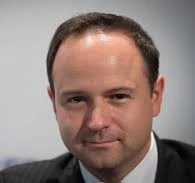
“It is a business to do good to people” (Muhammad Yunus)
Youssef lives in a small and disadvantaged rural province in the south of Morocco. He is a manufacturing worker in a local factory. He has two children aged 10 and 12.
The public school his children could attend is far from the factory and has been in the process of rehabilitation for several years. Student and teacher absenteeism is quite high, especially during the winter because the school has no heating and roads to the school are in poor condition.
Youssef feels fortunate because his children have been attending a private school very close to the factory where he works. He claims that since then, his son's reading, writing, and language skills have improved. This is all possible because of "Sanady", a social enterprise that provides education to the children of workers in factories nearby.
Sanady started in 2006 with less than 50 students. Today, it assists more than 3,500 students, financing itself from very affordable fees as well as from contributions from local enterprises.
Examples like Sanady are rare in Morocco, where the participation of the private sector in the provision of social services to the poor and vulnerable remains very limited. Common wisdom argues that social services to the poor are a public good and should be free of charge as poor individuals cannot pay for them. As such, it is seen as the role of the state to assure a minimum level of social services for the most disadvantaged population.
This model has led to many gaps in quality and coverage of social services because the capacity of governments alone to deliver services is generally limited, especially in developing countries.
In recent years, this has been put to question with the rise of social enterprises. Social enterprises like Sanady are a new breed of organizations: they operate often on a non-profit basis but use private sector models to provide goods and services. Social enterprises create revenues but their main objective is to achieve social impact. They are client oriented, innovative, and financially sustainable.
Social enterprises can be an engine of economic development and growth. The KickStart International Foundation in Kenya (a social enterprise that supports new business start-ups) has managed to lift more than 500,000 people out of poverty [1]. The Community Housing Partnership in Los Angeles, which provides job training and employment opportunities to former prisoners and homeless people, found that for every US$1 dollar spent by the enterprise, almost US$4 dollars were saved in reductions in recidivism and in increased employment [2].
Social enterprises can also help job creation: the Grameen Bank in Bangladesh, a social enterprise specialized in providing financing services to the poor, employs approximately 35,000 people.
Promoting the development of social enterprises to deliver social services in selected key sectors, such as employment, health, and education services, seems an interesting option for Morocco. Despite having a sizable public sector, the institutional capacity of the government to provide quality social services to the poor or disadvantaged remains limited. In this context, social enterprises could become government partners in service provision.
Despite their potential, social enterprises in Morocco remain largely undeveloped. Social enterprises often start as NGOs. While there is an NGO movement developing in Morocco, most NGOs in the country display a limited capacity, have limited access to finance, and do not generally generate much revenue other than that they get from donations.
The social enterprise sector in Morocco needs to be developed. This could be achieved through the mix of four policy interventions: capacity building to existing NGOs; (ii) provision of grants to social enterprise start-ups; access to finance to middle-size social enterprises to help them develop; and the preferential provision of government contracts to social enterprises for certain social services.
With support from a Multi-Donor Trust Fund, the World Bank and the British Council are promoting the social enterprise agenda in Morocco. For this purpose both institutions will sign a memorandum of understanding during the First Social Enterprise Forum to be held in Casablanca on March 21 and 22, 2014, in order to both raise awareness of the potential of social enterprises to create jobs and become partners with the government in the provision of social services, and to develop a pilot program to provide support, coaching, and financing to social enterprises in Morocco.
Social enterprises could become that missing link in the region to improve welfare to the most vulnerable segments of the population, develop a socially aware private sector, and create quality jobs.


Join the Conversation